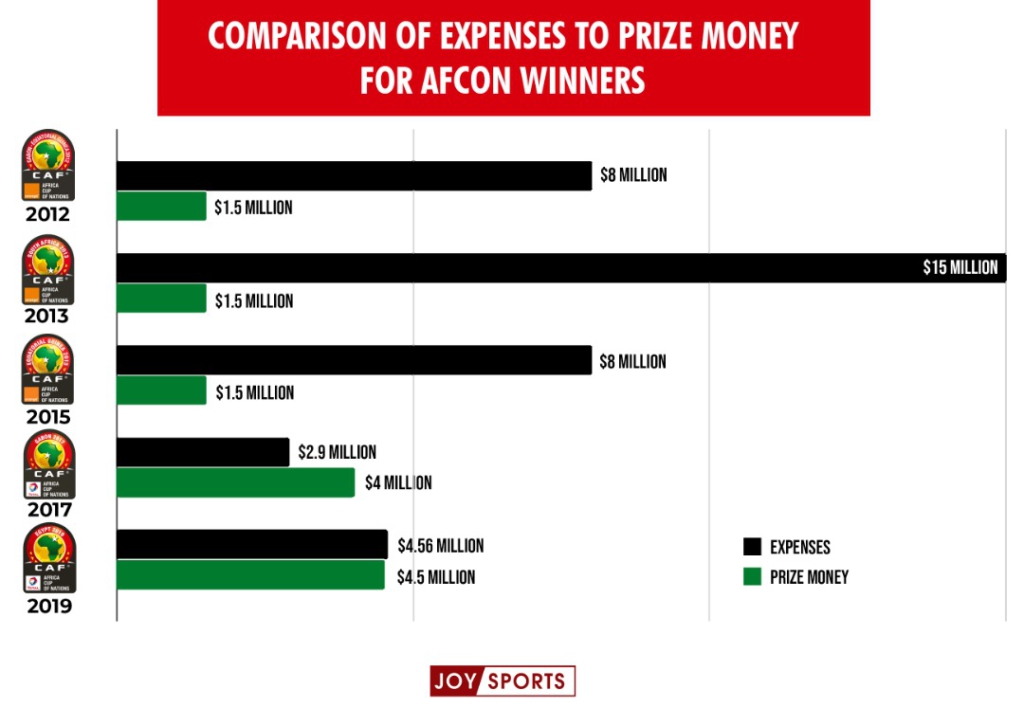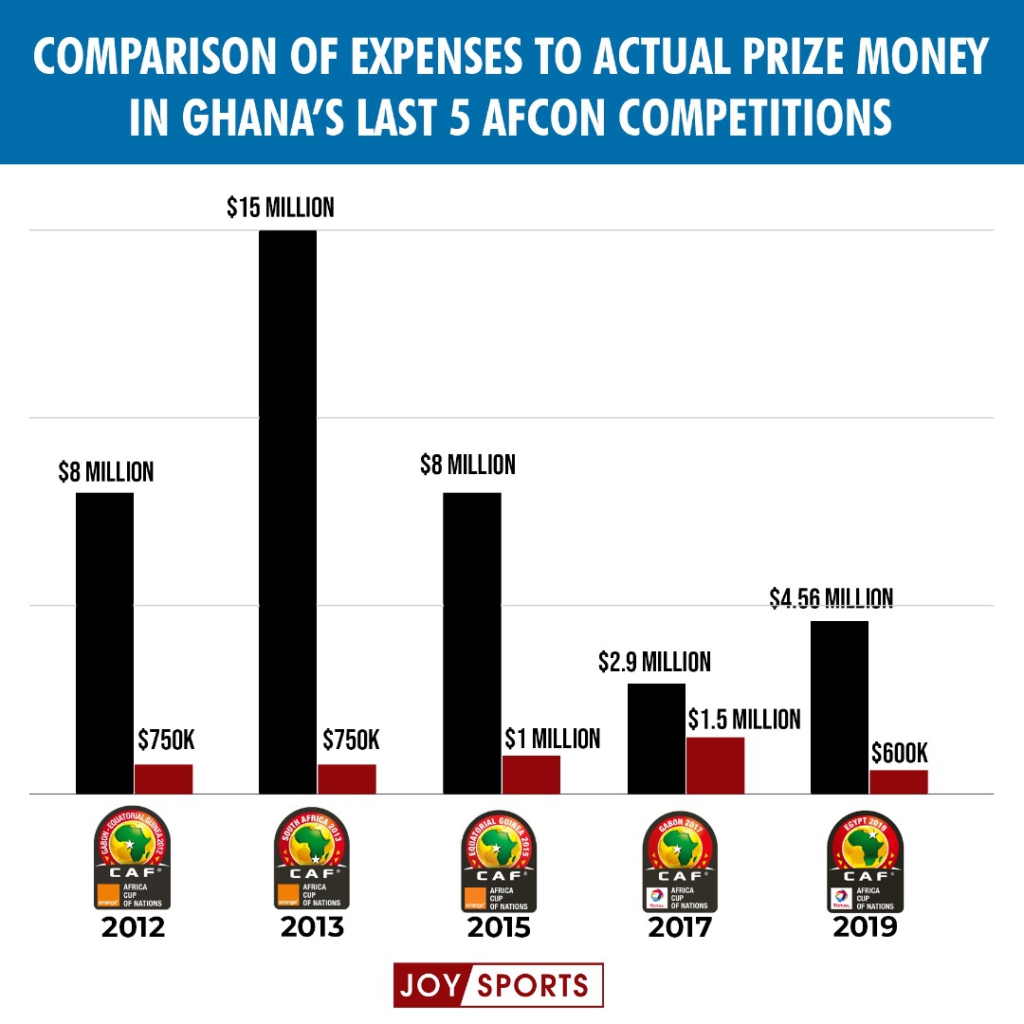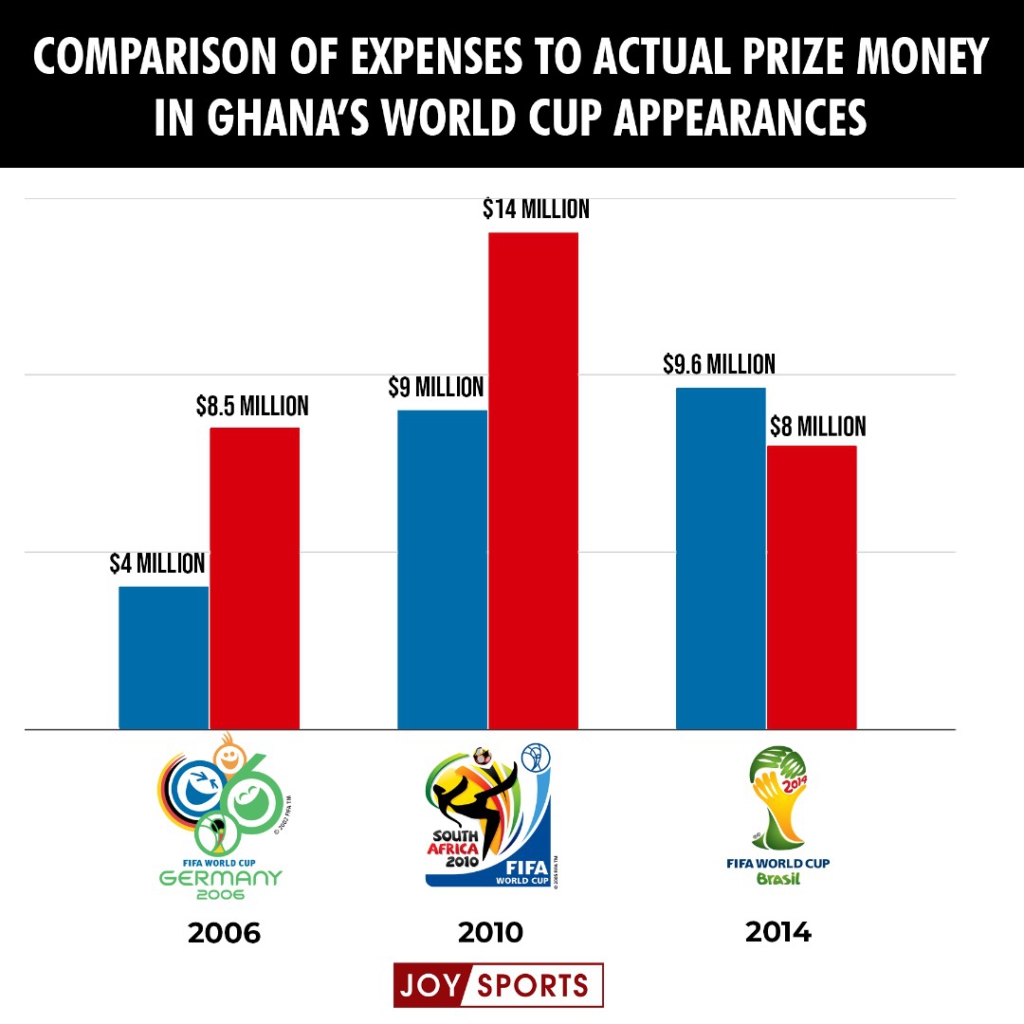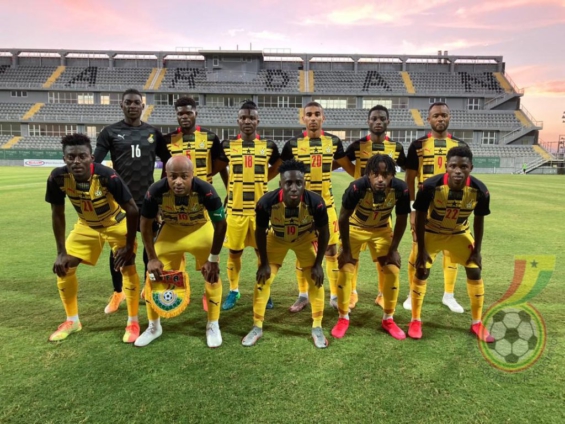It was only over a month ago when the Ghanaian population were left outraged by what was, in fact, a budgetary bombshell.
Minister for Youth and Sports, Mustapha Ussif, triggered a nationwide conversation during a breakfast meeting between corporate Ghana and the Chief Executive Officers from state institutions. It was a $25 million dollar conversation.
“It is the dream of the nation to win the Africa Cup of Nations (AFCON) again in Cameroon next year, and to qualify for the 2022 FIFA World Cup,” he began.
“These campaigns require a substantial amount of investment to be able to execute this mandate, approximately $25 million and the government alone cannot shoulder this responsibility at the expense of other sporting disciplines.”
“Historically, the Black Stars have performed well every time corporate Ghana has backed them and it is our hope that you will do the same again,” he stated.
It was subsequently added that, out of the $25 million dollars needed for the 2021 AFCON trophy and 2022 FIFA World Cup run, the government can only raise $10 million, hoping Corporate Ghana produces the rest ($15 million).
Until the tournament actually starts, this seemingly high figure will rest in the minds of Ghanaians.
What we are looking out for
It has already been stated that the money involved will be split between the upcoming 2021 AFCON tournament in Cameroon and the Qatar 2022 World Cup journey which includes the qualifiers and the tournament proper if qualification is secured.
Simply put, the team will release funds for the AFCON showcase in Cameroon, the 2022 World Cup qualifiers which will start in September and the 2022 World Cup proper, provided Ghana moves past the qualifiers with relative ease.
As such, the AFCON and FIFA World Cup will be looked at separately, highlighting expenditure over the last five editions compared to actual prize money provided by CAF for tournament winners.
A similar focus will be placed on the World Cup, looking at money spent for the 2006, 2010 and 2014 editions as compared to the actual prize money received.
The AFCON breakdown
Over the last five editions of the AFCON, fans have been left disappointed by the finishes of the senior national team.
Since 2011, Ghana was only able to make the final of the competition on one occasion (2015), eventually losing on penalties to Ivory Coast. It is the only medal the team has received from the competition in the last nine years.
Yet, the nation managed to spend over $25 million more than the amount CAF have dished out to winners of the competition from the 2012 edition.

In the 2012, 2013 and 2015 editions, the prize money for the winners of the showcase was $1.5 million each. Ghana managed to spend about $8 million in 2012, $15 million in 2013 and $8 million in 2015 according to Ghanaweb. This means there was a $26.5 million gap between the nation’s spend and CAF’s spend for AFCON victors during that timeline.
2017 witnessed an increase of prize money for the AFCON winner to $4 million dollars whilst Ghana spent $3.37 million that year, a surprisingly lower spend.
In the following edition however, amid huge speculation around the budgeted amount, former Minister of Youth and Sports, Isaac Asiamah, revealed that Ghana spent about $4.56 million to end the drought. An amount of $4.5 million was set aside by CAF for the 2019 AFCON winner which eventually turned out to be Algeria. The gain the 2017 edition is about $0.57 million.
Knowing that Ghana have failed to win the AFCON since 1982, the spending gap in actual sense, is steeper than the above.
In the 2012 and 2013 editions, the four-time AFCON winners earned just $750,000 for each edition by virtue of their fourth-place finishes.
Two years later, Ghana earned $1 million for placing second. In the two editions that followed, they earned $1.5 million and $600,000 for a fourth and round of 16 finishes respectively.
Using their actual positions as the benchmark, Ghana have spent about $33.86 million more than what they actually earned from the AFCON since 2011. Huge investments have been made but the trophy is yet to be held.

According to Mustapha Ussif on Citi TV, about $700,000 is spent on each World Cup qualifiers match.
“Out of the $25 million, if we have to play in the AFCON, we have to prepare. And we need to play two friendly games. And besides that, the World Cup qualifiers that we have to play, we will not spend less than $700,000 on each match."
If this same template is taken to the AFCON, the team will be expected to spend $6,300,000 or more which is broken down into two friendlies and seven AFCON 2021 matches if the nation eventually wins it all.
World Cup breakdown
The Black Stars featured in their first ever World Cup tournament in 2006 with what was viewed as the golden generation.
Stephen Appiah, Michael Essien, Sulley Muntari and others made good accounts of themselves as the team managed to advance to the round of 16.
In the 2010 edition, the Black Stars did one better, qualifying to the quarter finals with the help of Asamoah Gyan’s goals.
It was a disaster four years later with the team crashing out of the group stages and clouded by a lot of controversy before, during and after the tournament.

For the 2006 FIFA World Cup, it was revealed by Ghanaweb that $4 million was spent on the Black Stars. Four years later, the figure increased to $9 million.
In 2014, a budget of $9.6 million was approved by government. Since the actual figure expensed is unclear, the budgeted amount will be viewed as the expensed amount.
Ghana earned about $8.5 million in 2006 for reaching the round of 16 and earned an impressive $14 million for reaching the quarter finals in 2010. In 2014, they earned $8 million for suffering a group stage knockout.
This means that prize money earned from the competition was $7.6 million more than what was spent in those three world cups combined.
With this upcoming tournament, the team is expected to incur $5.6 million from the world cup qualifiers alone (8 matches). Add two friendlies and seven world cup matches and the amount will increase to at least $11.7 million. Some other expenses like inclusion of fans will certainly shoot the figure up as well.
Should spending be the problem?
A school of thought will definitely look at potential expenditures with a raised eyebrow. Others will look at it from the perspective of trust.
In the last few years, team selections have always been an issue with fans left complaining about exclusions and inclusions of particular players.
Ahead of the AFCON qualifiers against Sao Tome and South Africa, fans were angered by the inclusion of Kwame Opoku, an unknown prospect from Colchester.
Also, there is the view that the team lacks the necessary quality, and or chemistry to win the African crown next year. The jury is also out on the suitability of Charles Kwablan Akonnor on the role of head coach.
In every tournament, money will certainly be spent, sometimes controversially higher than expected. But, when push comes to shove, money will be a huge talking point when the Black Stars fail to meet their objectives.
The main headache now is to find the right balance of quality and tactics to make the team succeed in the upcoming AFCON and the World Cup.
Latest Stories
-
Republic Bank PLC announces resignation of Arimeyaw Ibn Saeed as Non-Executive Director
4 minutes -
Government scholarships are not for sale – Registrar
31 minutes -
Mahama bans DSTV, satellite TV subscriptions at Jubilee House
46 minutes -
2 suspects arrested in Elmina for smuggling 250 bags of cocoa beans
1 hour -
Shrinking to increase: The economic and structural risks with decreasing building material sizes
1 hour -
GRNMA strike: We won’t treat gov’t with kid gloves – Health Committee Ranking Member
1 hour -
Goosie Tanoh highlights Ghana’s strategic role in Africa’s textile future at industry dialogue
2 hours -
I was depressed at a point in my life – Kwabena Kwabena
2 hours -
There’s an agenda from gospel fraternity not to push my EP – Kwabena Kwabena
2 hours -
Growth outlook in Sub-Saharan Africa including Ghana tilted to downside – World Bank
2 hours -
Airport City is an open place from small, medium businesses – ACA
2 hours -
World Bank forecasts 3.7% growth rate for Sub-Saharan Africa in 2025, affirms 3.9% for Ghana
2 hours -
BoG loss of GH¢9.49bn, strategic national investment, not fiscal mismanagement – IERPP
3 hours -
KATH HR Manager’s office locked by unknown persons demanding his removal
3 hours -
Minority accuses First Deputy Speaker of partisanship over rejected nurses’ strike statement
3 hours

